Bonnie Tyler: The Husky-Voiced Queen of Heartache Anthems and Rock Resilience
Her eyes seem to hold an entire sky of emotion—soft yet defiant, tender yet unbreakable. That golden hair, that husky tone, that quiet confidence—she’s not just a singer; she’s a feeling. When her voice rises, it’s not just sound—it’s raw emotion, power, and poetry rolled into one. She is the unforgettable Bonnie Tyler, the golden husky voice of the world, and her story is one of resilience, rebellion, and rock royalty.
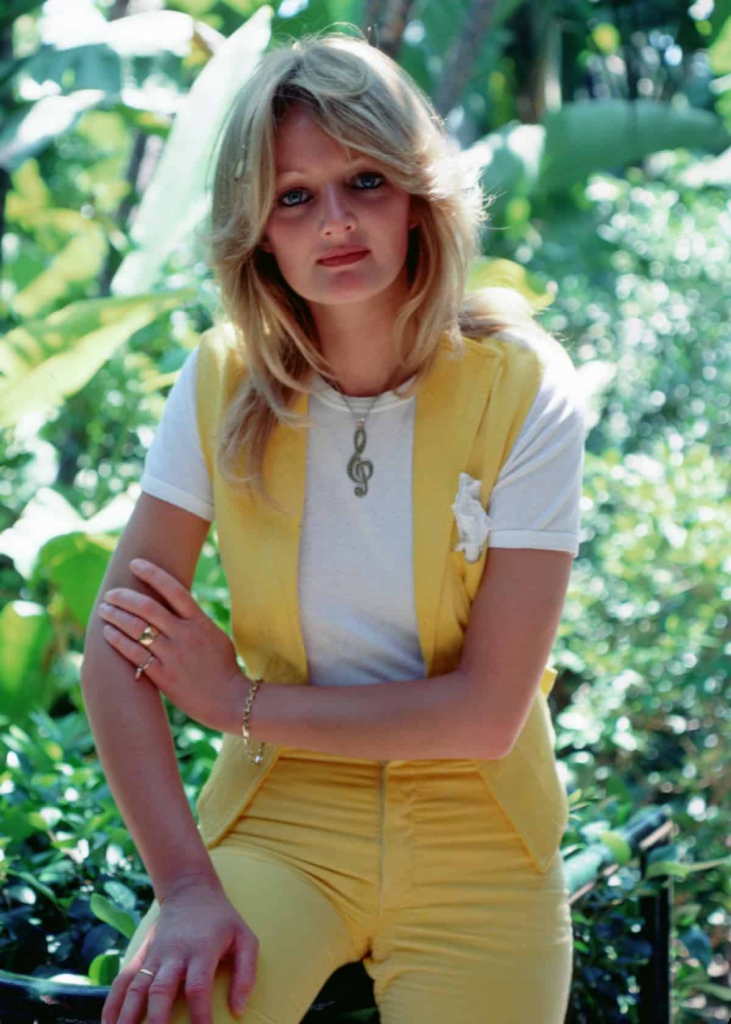
From Welsh Valleys to World Stages: The Early Life of a Powerhouse
Born as Gaynor Hopkins on June 8, 1951, in Skewen, Wales, Bonnie Tyler grew up surrounded by music and modesty. Her father was a coal miner, her mother a singer with an angelic voice who filled their home with melodies. Bonnie’s earliest performances weren’t on stages or in studios—they were in church choirs, where she learned how to pour her soul into every note.
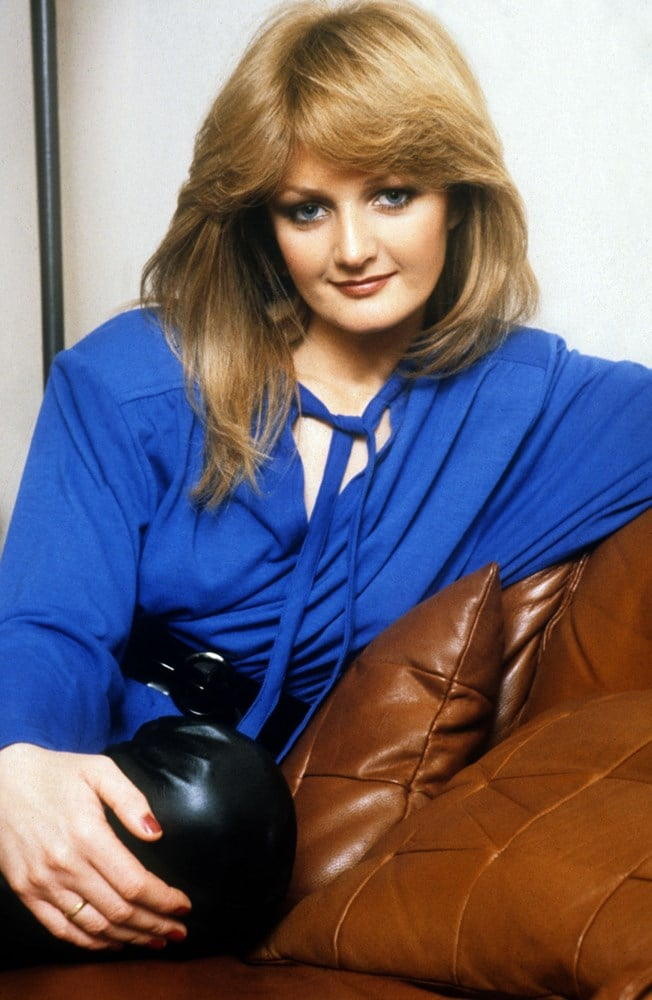
By her teens, she was waitressing by day and singing in smoky clubs by night, performing with local bands like The Bobcats. Her big break came when a talent scout spotted her unique tone—a mix of velvet and gravel—and signed her to RCA Records. But fate had more in store than fame; it had transformation.
Video : Bonnie Tyler the youth photos of the popular singer of the eighties
The Voice That Changed Everything
In 1977, surgery on her vocal cords threatened to end her career before it truly began. When Bonnie returned to sing, something extraordinary had happened—her once-smooth tone had transformed into that signature rasp the world would come to adore. What could have been tragedy became her trademark.
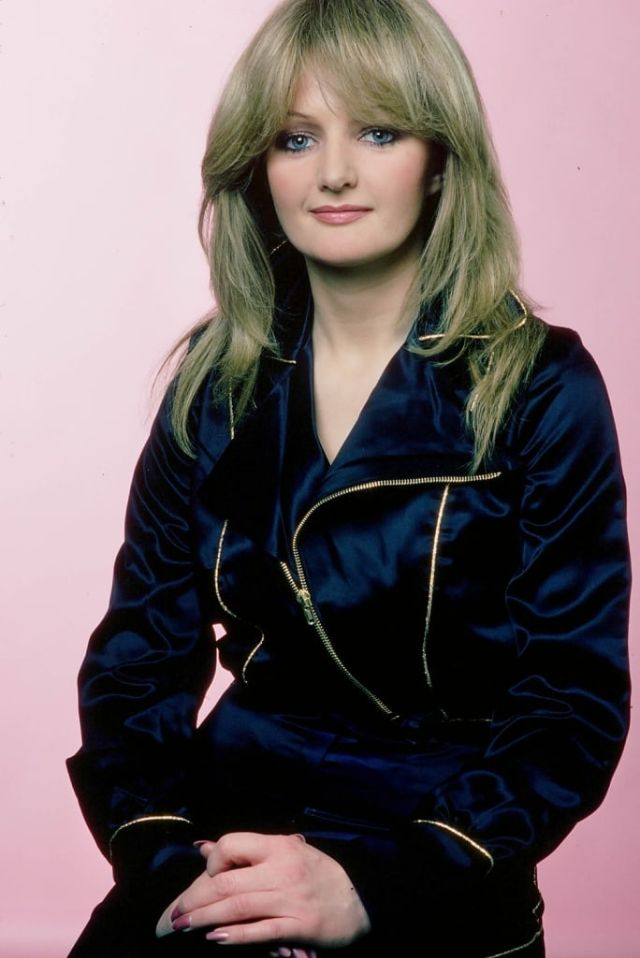
That same year, she released her debut album The World Starts Tonight, featuring “More Than a Lover.” But it was her 1978 global smash “It’s a Heartache” that launched her into superstardom. Selling over six million copies worldwide, the song made her a household name—her raspy cry cutting through radio static like lightning through fog.
Ever wonder why her songs hit so hard? It’s because they’re sung from scars, not scripts. Bonnie didn’t just survive adversity—she sang it.
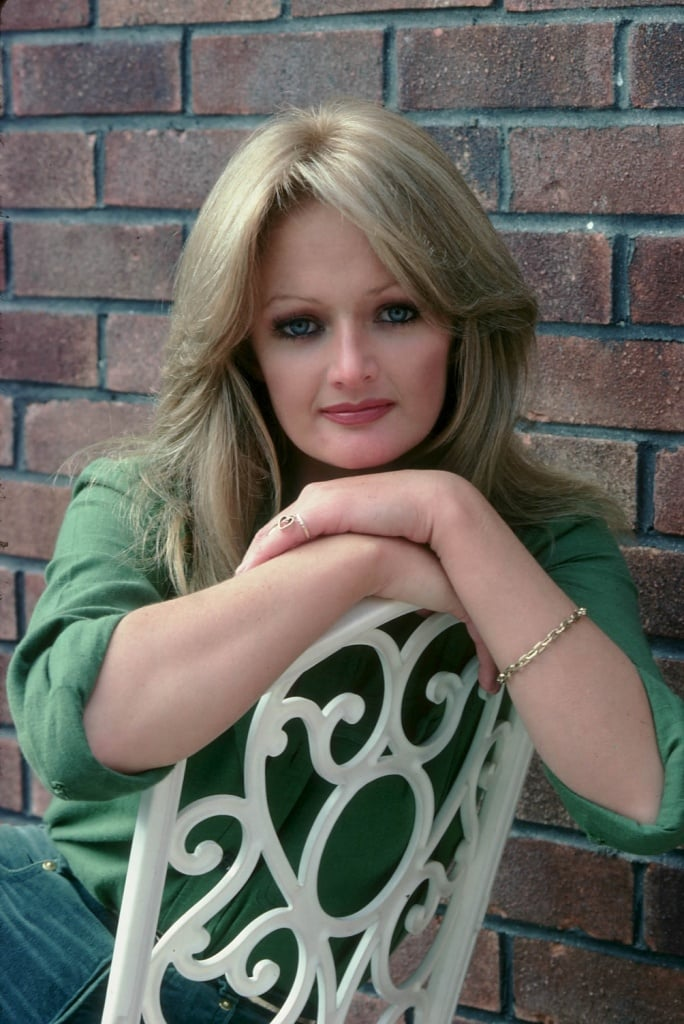
Total Eclipse of the Charts: The 1980s Explosion
Then came the 1980s—a decade made for Bonnie Tyler. When she met producer Jim Steinman, the mastermind behind Meat Loaf’s epic soundscapes, musical magic happened. Together, they crafted Faster Than the Speed of Night (1983), an album that redefined power ballads forever.

Its lead single, “Total Eclipse of the Heart,” was a universe of emotion—a seven-minute operatic explosion of love, loss, and longing. It rocketed to No. 1 in both the U.S. and the U.K., selling over 20 million copies. That haunting chorus—“Turn around…”—became an anthem for generations, proving that pain could sound beautiful.
Not long after came “Holding Out for a Hero,” the fiery anthem from the Footloose soundtrack. With its pounding drums and fearless vocals, Bonnie didn’t just sing about heroes—she became one. Her music wasn’t background noise; it was the heartbeat of an era.
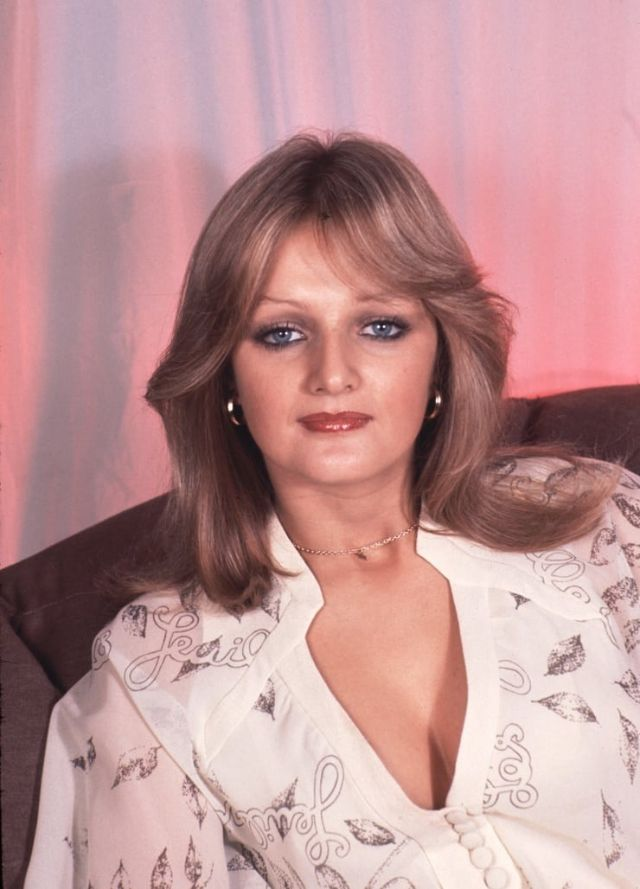
Global Fame and Reinvention
Bonnie Tyler’s success wasn’t confined to English-speaking audiences. She became a global sensation, touring across Europe, Asia, and the Americas. Her duet “Si Demain…” with French artist Kareen Antonn topped charts in France, proving that emotion speaks louder than language.
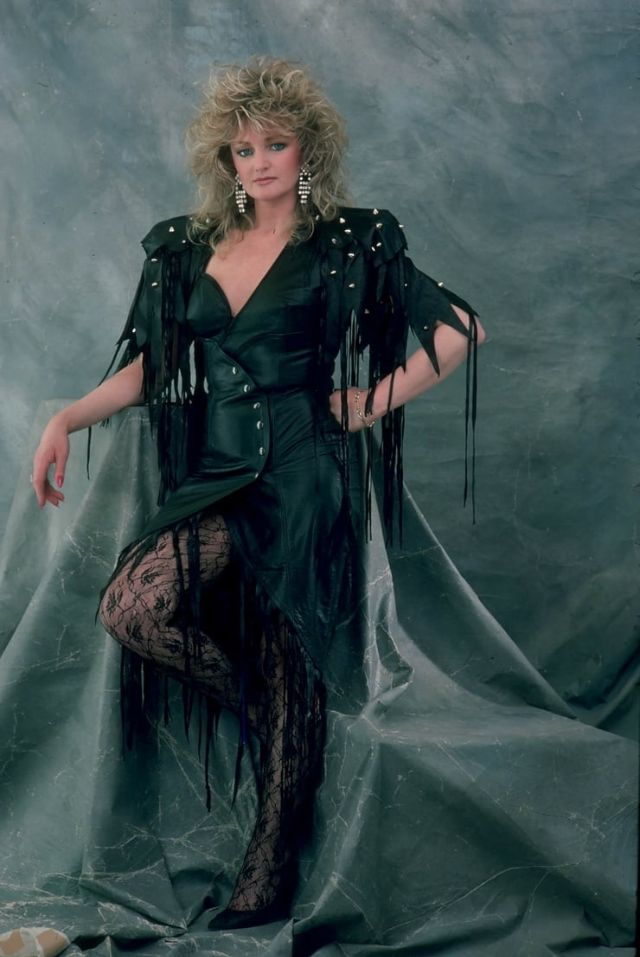
She also became a two-time Eurovision performer, representing the United Kingdom in 2013 with “Believe in Me.” Though she didn’t take the trophy, her performance was pure class—a veteran proving that passion doesn’t fade with time.
Albums like Hide Your Heart (1988), Bitterblue (1991), and Rocks and Honey (2013) showcased her ability to evolve without ever losing her raw edge. While trends came and went, Bonnie stayed authentic—a true artist in an industry of imitators.
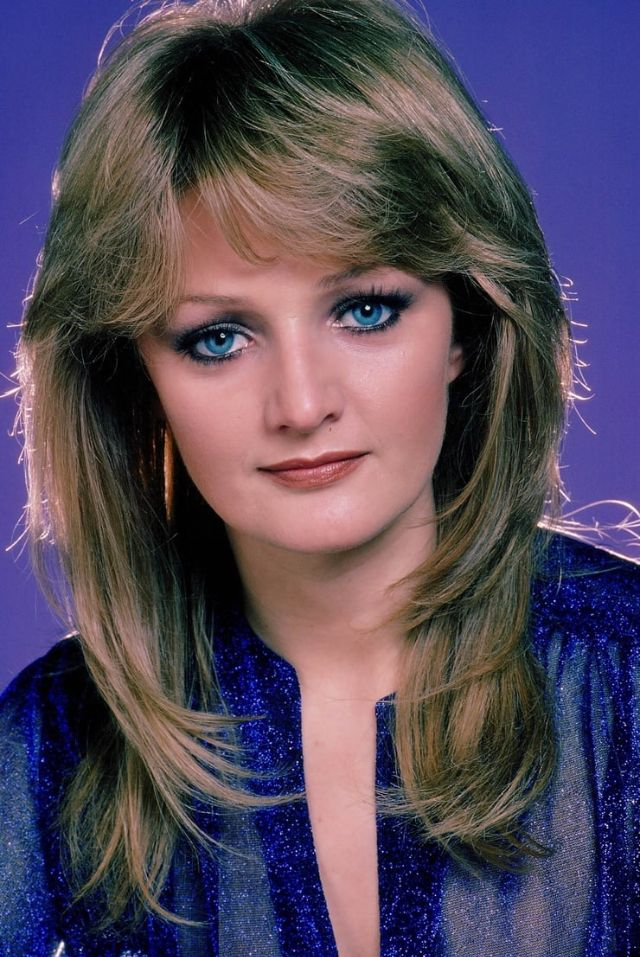
Behind the Spotlight: Love, Loyalty, and Longevity
Offstage, Bonnie’s life has been refreshingly grounded. She’s been married to Robert Sullivan, a former rugby player and musician, since 1973—a love story that’s outlasted most careers. The couple lives between Wales and their villa in Portugal, away from the chaos of fame.
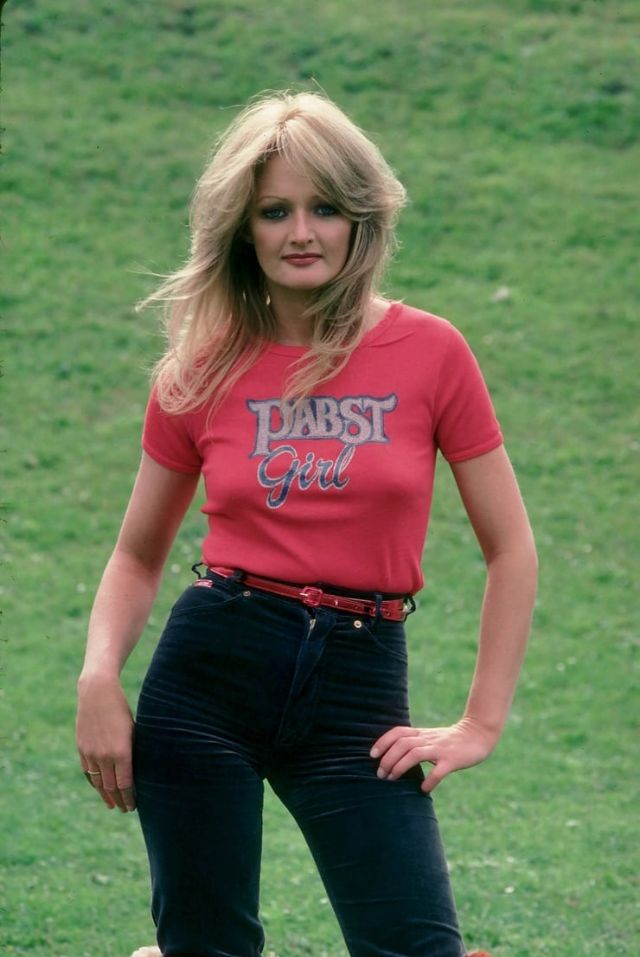
Despite never having children, Bonnie has always nurtured her family, fans, and causes close to her heart. Her charity work includes support for children’s hospitals, cancer awareness, and animal welfare. Fame never corrupted her—it simply gave her a louder platform to do good.
When asked about her secret to happiness, Bonnie once said, “Stay humble, sing from your heart, and never stop believing in the next song.” That’s not just advice—it’s her life philosophy.
Video : [Shocking Fact] 50 Rare Photos You Must See Of Bonnie Tyler’s And Untold Story
Still Rocking the World at 74
Fast-forward to 2025, and Bonnie Tyler remains unstoppable. At 74, she’s still touring Europe, her raspy roar as captivating as ever. Her 2024 single “Yes I Can” became an unexpected viral hit—a defiant anthem for dreamers who refuse to slow down.
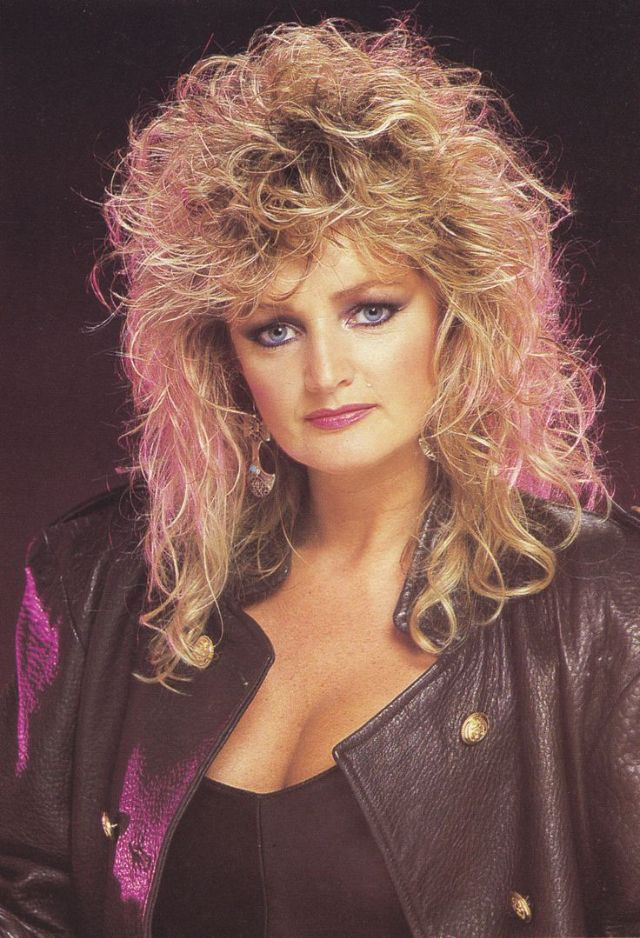
She continues to record, collaborate, and connect with fans who span three generations. Whether performing at massive festivals or intimate theaters, she commands the stage like she always has—with authenticity, fire, and grace.
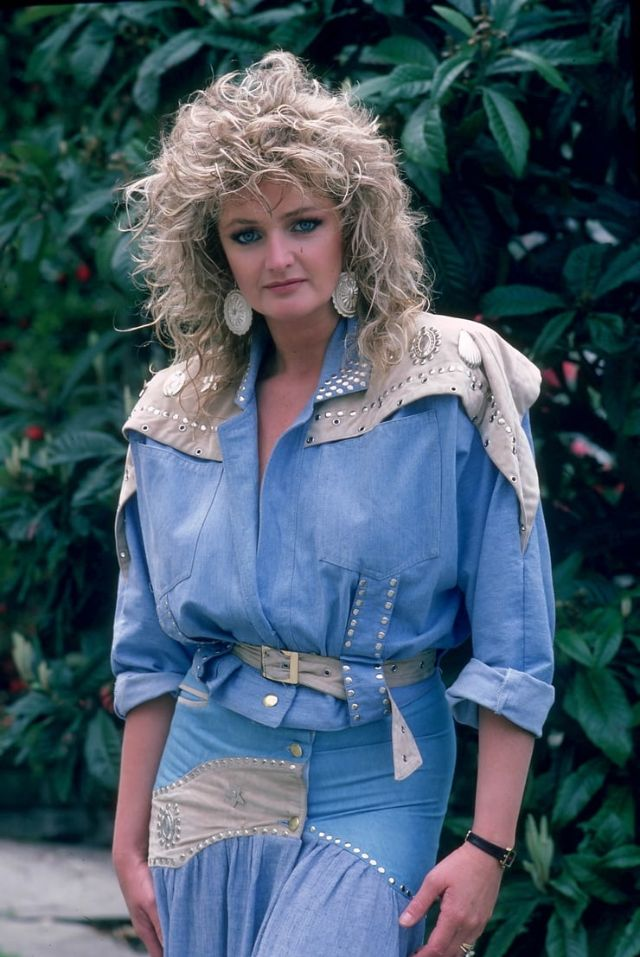
Her estimated 100 million records sold speak for themselves, but numbers don’t define her. What defines Bonnie Tyler is that unmistakable voice—the kind that makes you stop, feel, and remember that music isn’t just heard; it’s lived.
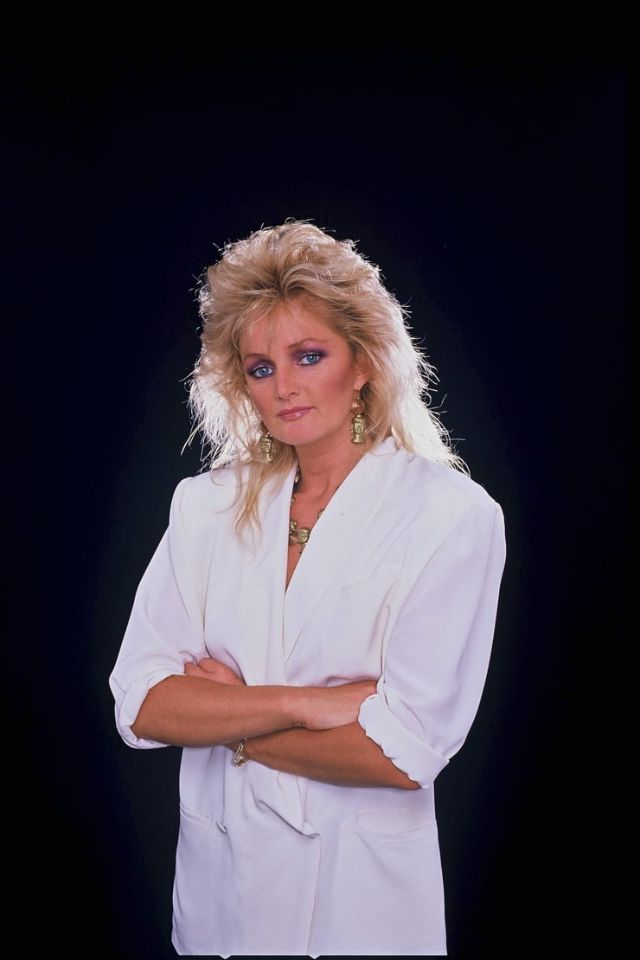
Legacy of a Rock Legend
Bonnie Tyler isn’t just an icon—she’s an inspiration. From her humble Welsh beginnings to global superstardom, she’s proved that the greatest power comes from authenticity. Her raspy, emotional vocals shattered conventions, giving women in rock permission to be both strong and vulnerable.
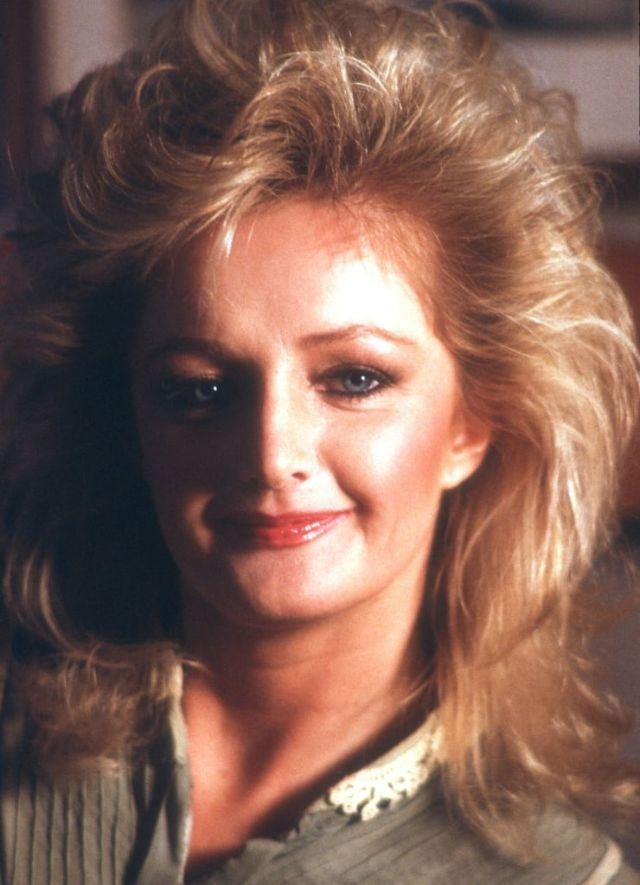
Her songs still fill car rides, karaoke nights, and hearts around the world. “Total Eclipse of the Heart,” “It’s a Heartache,” “Holding Out for a Hero”—each track is a time capsule of emotion, echoing through decades with undimmed force.
Conclusion: The Voice That Will Never Fade
Bonnie Tyler’s story isn’t just about fame—it’s about perseverance, passion, and purpose. She turned obstacles into opportunities, pain into poetry, and her voice into one of the most recognizable sounds in music history.
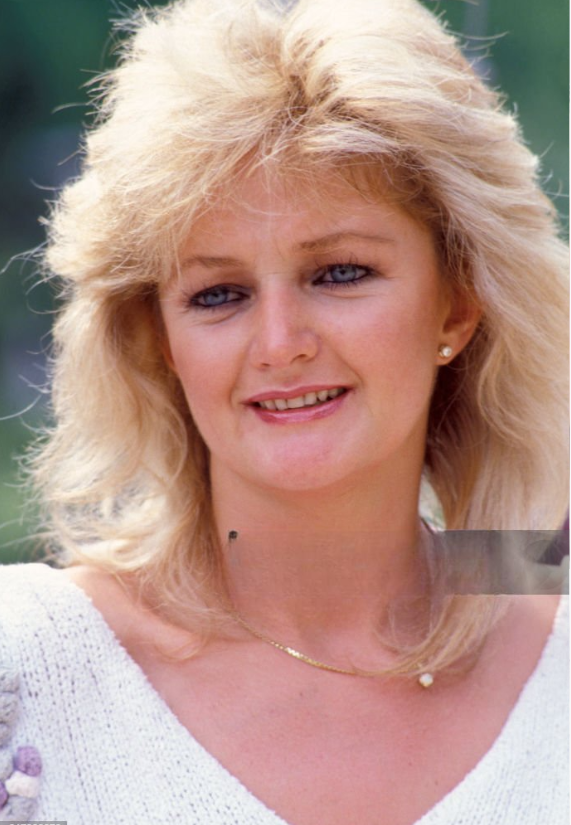
Decades may pass, but when that raspy whisper hits the air, you’ll still know it’s her. Because Bonnie Tyler doesn’t just sing—she lives every lyric.
Her golden hair may shimmer with time, but her fire burns as fiercely as ever. And as long as there are hearts that break, hope that heals, and songs that save, Bonnie Tyler’s voice will keep on echoing—forever timeless, forever powerful, forever her.